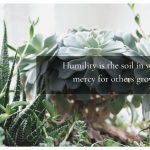I've admired articles and posts written by Jen Wilkin but this was my first chance to read a book she had written. I'd heard nothing but good things about Women of the Word
(Including on the Family Life Today radio show which intrigued me even more)
So when I joined Crossway's book review program, I was thrilled to find this as an option for my first review copy.
Women of the Word is Not Your Typical Bible Study Book
If you're a Christian woman, you've probably participated in a Ladies' Bible study or church small group for women.
I've attended many of these in my adult life and honestly, most of them didn't change my life.
They weren't in depth studies of the Bible. And they didn't teach women how to study the Bible. Honestly, they seemed dependent on jumping all around the Bible for verses that "proved" the speaker's point, fit a specific topic, or evoked a certain emotional response.
I'm an INTJ in the Myers-Briggs personality metric which means I don't like having my emotions manipulated. I resent it, in fact. But I'm also a Christian. So the fact that I didn't respond to these "studies" the way other women seemed to was sometimes disturbing to me. Was my faith deficient? What was I missing?
Women of the Word as a Corrective
Wilkin's book corrects so many errors.
She puts things in order and brings perspective: to really love God, we have to know Him. And we learn to know Him through His word, the Bible.
She lays out exactly how to study a book of the Bible in a practical, achievable way. (And she understands that women's lives are seasonal and not all seasons can be given to the same depth of study.)
She teaches how to study the Bible with what she calls "The Three P's":
Purpose, Perspective, Patience, Process, and Prayer.
Each step makes sense and they build on each other.
As women become more confident in their Bible literacy, they may become able to teach others too.
Wilkin points out:
The teacher is not the one with greater knowledge but with a greater natural curiosity to pursue the questions we all encounter.
And what about the hard passages, the things we don't understand even after deep study?
Wilkin reminds us:
Avoiding the difficult questions only feeds doubt and fear over the long term.
What would happen in our homes, in our churches, and in our world, if Christian women really knew how to study their Bibles for themselves?
Just thinking about how amazing that would be makes me want to be sure that every woman I know gets a copy of this book.
I love how she phrases the result of the deeper study she promotes:
Loving God with our minds should result in loving God with our hearts deeply and purely.
My love for God doesn't need to be based on the superficiality of my admiration for a certain woman who produces Bible studies or books.
And it won't be based on rushing through the Bible in a year or a specified amount of time.
I love the balance here: hearts are engaged because minds are equipped. Neither emotions nor reason take priority over the other.
My love for God can grow deeper and stronger by engaging my mind with truly meaningful study.
Because the more I know of God from His own word, the more I will love Him and desire to bring Him glory.
This is not a long book. But if you read it and apply it to your personal Bible study (and maybe even the Bible studies you pursue with other Christian women), you will be changed.
Highly recommended.
You can find out more about Jen Wilkin and her other works at her website: The Beginning of Wisdom.











